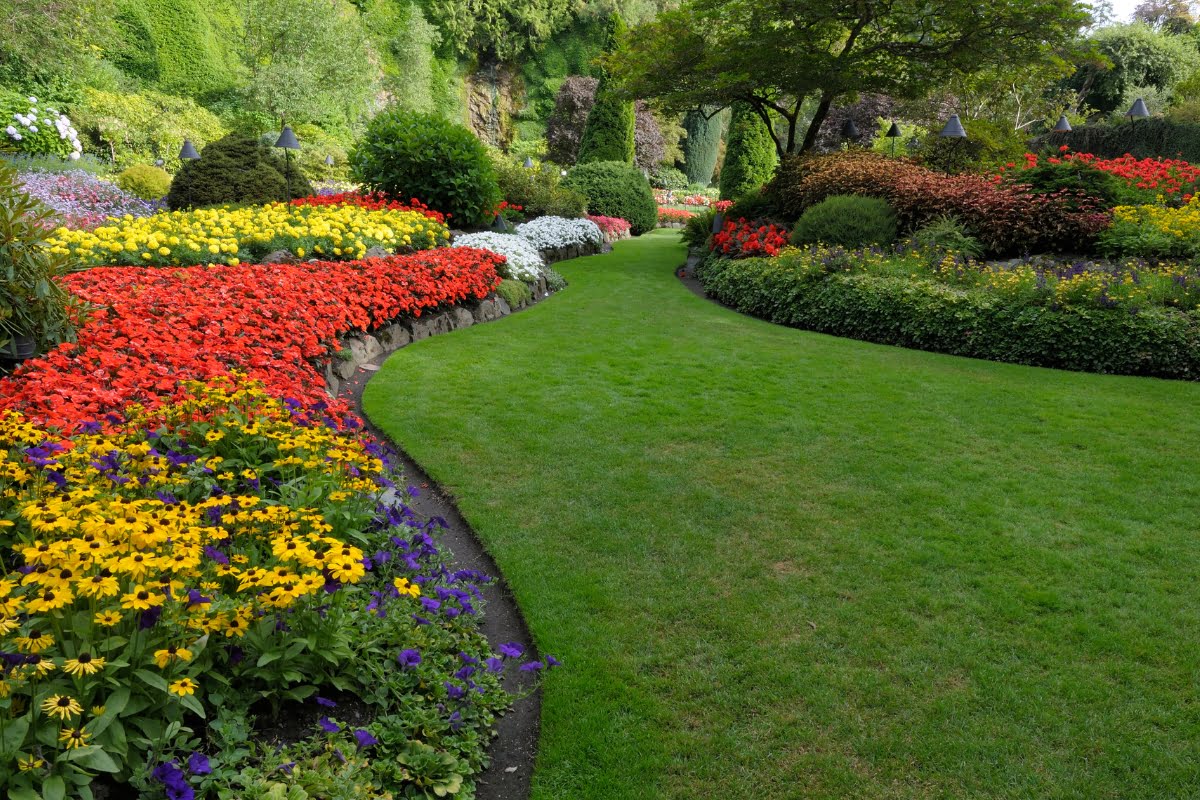Summer is the perfect season to transform your backyard into a vibrant oasis, bursting with color and life. With the sun shining brightly and long days ahead, your garden has the potential to become a lush haven of beauty and tranquility.
In this guide, we’ll share essential summer gardening tips to help you make the most of this energetic season. From choosing the right plants and ensuring proper hydration to managing pests and enhancing soil health, these summer gardening tips will empower you to cultivate a thriving garden that dazzles the senses.
Whether you’re a seasoned gardener or just starting out, get ready to elevate your backyard into a summer sanctuary where nature flourishes and relaxation reigns.
From Bloom to Boom: Unlock Your Garden’s Potential This Summer
Choosing the Perfect Summer Plants for Your Oasis
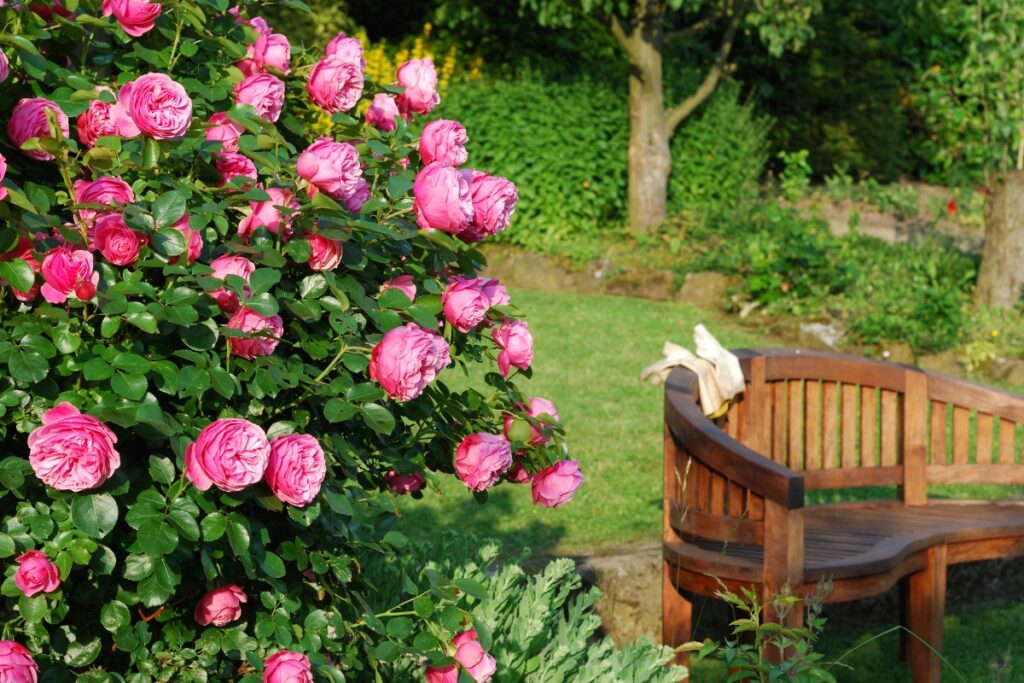
When it comes to creating a vibrant oasis in your backyard, choosing the right plants is crucial. Not all plants can withstand the scorching heat of summer, so it’s important to select those that thrive in these conditions. Here are some summer gardening tips to help you choose the perfect plants for your oasis:
- Consider the sun requirements: Before selecting any plants, assess the amount of sunlight your backyard receives throughout the day. Some plants require full sun, while others prefer partial shade. By understanding your garden’s sun exposure, you can choose plants that will flourish in those conditions.
- Opt for drought-tolerant varieties: Summers can be hot and dry, so it’s wise to choose plants that are drought-tolerant. These varieties have adapted to survive with minimal water and will continue to thrive even during water restrictions or periods of neglect.
- Look for colorful blooms and foliage: One of the joys of summer gardening is witnessing an explosion of colors in your backyard. Choose plants with vibrant blooms and foliage that will add visual interest and create a lively atmosphere.
- Consider native species: Native plants are well-suited to their local environment and often require less maintenance than exotic species. They also provide food and shelter for local wildlife, making them an excellent choice for creating a sustainable oasis.
By carefully selecting the right combination of plants based on their sun requirements, drought tolerance, colors, and native status, you can create a stunning oasis that thrives even during the hottest months of summer.
Maximizing Sunlight: Optimal Placement and Sun Requirements
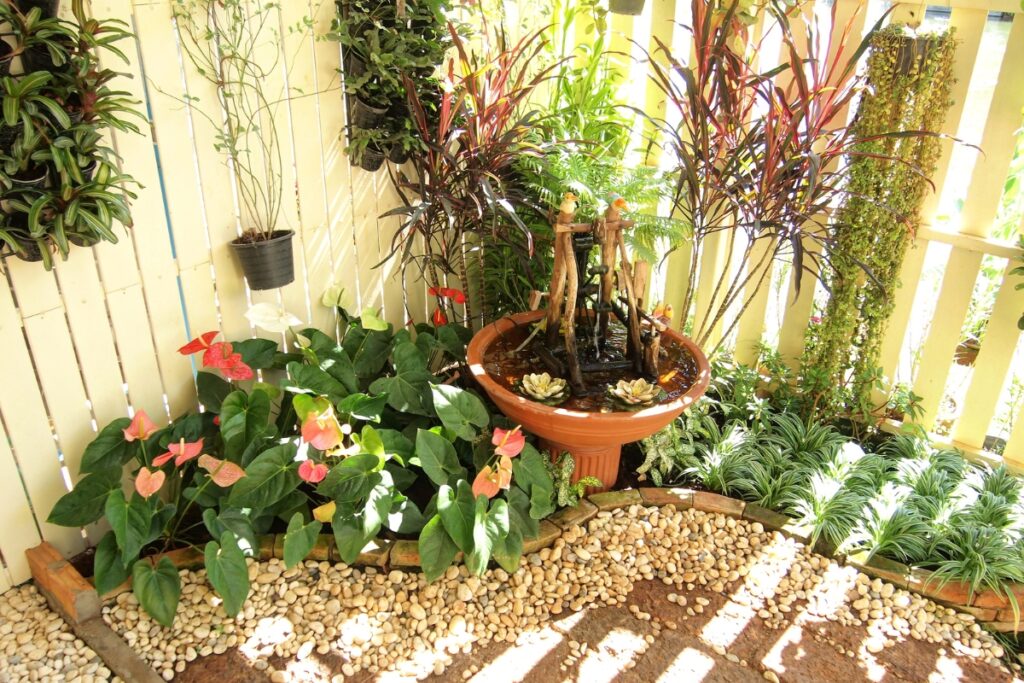
To create a vibrant oasis in your backyard during the summer months, maximizing sunlight is crucial. Proper placement of your plants and understanding their sun requirements are key factors in ensuring a thriving garden.
When implementing summer gardening tips, consider the optimal placement of your plants. Place sun-loving plants in areas where they can receive direct sunlight for at least 6-8 hours a day. This will help them photosynthesize efficiently and bloom abundantly, adding color and vibrancy to your outdoor space.
Understanding the sun requirements of different plant varieties is essential for successful gardening. Some plants thrive in full sun, while others prefer partial shade. By researching the specific needs of each plant in your garden, you can tailor their placement to maximize sunlight exposure and promote healthy growth.
Incorporating elements like trellises or plant stands can help elevate sun-loving plants to ensure they receive adequate sunlight throughout the day. This strategic positioning can make a significant difference in the overall health and appearance of your garden.
By carefully planning the placement of your plants and catering to their sun requirements, you can create a lush and vibrant oasis in your backyard. Follow these summer gardening tips to make the most of the sunshine and transform your outdoor space into a blooming paradise.
Watering Wisely: Hydration Tips for Thriving Plants
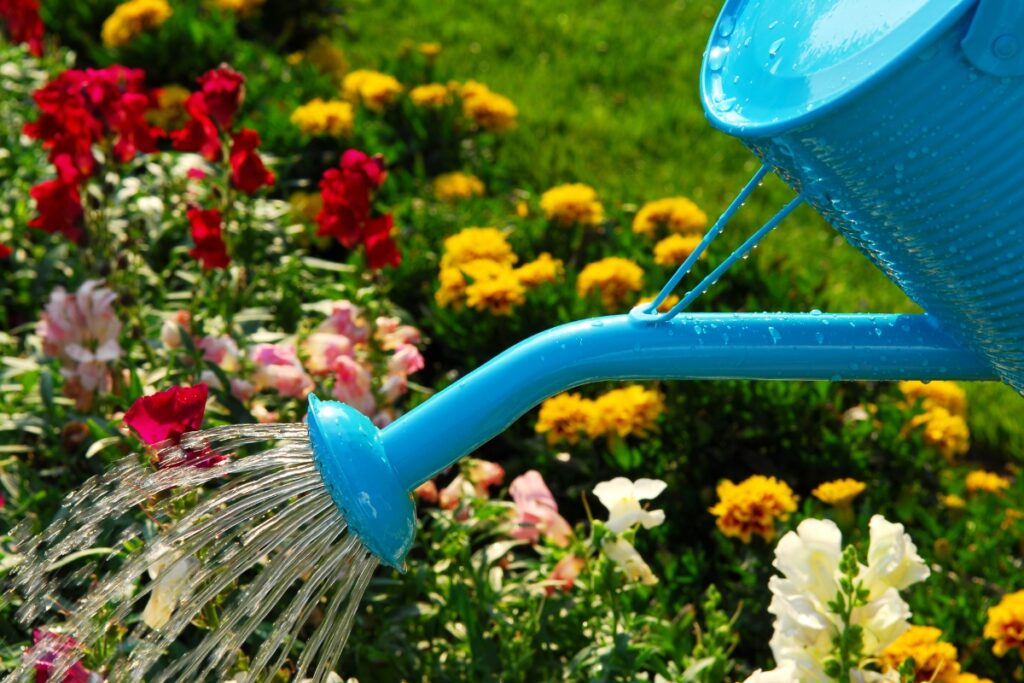
Watering your plants wisely is crucial to ensure they thrive during the hot summer months. For your garden oasis to flourish, adequate hydration is key. Let’s delve into some hydration tips to keep your plants vibrant and healthy.
- Know Your Plants: Different plants have varying water needs. Some may require frequent watering, while others thrive with less. Understand the specific requirements of each plant in your garden to avoid overwatering or underwatering.
- Water Deeply: Instead of daily light watering, opt for deep watering less frequently. This encourages plants to develop deeper roots, making them more resilient to dry spells.
- Time it Right: Make sure to water your plants either early in the morning or late in the evening to reduce water loss due to evaporation. It’s best to refrain from watering them during the peak heat hours of the day to avoid damaging the leaves.
- Use Mulch: Mulching around your plants helps retain soil moisture, reducing the frequency of watering needed. It also acts as a protective barrier, keeping roots cool during the scorching summer heat.
- Choose the Right Tools: Use watering cans, hoses, or drip irrigation systems to deliver water directly to the plant’s root zone. This ensures efficient water usage and prevents water wastage.
- Monitor Soil Moisture: Invest in a moisture meter to gauge the moisture levels in your soil accurately. This tool helps you determine when to water your plants, eliminating guesswork.
- Water According to Plant Growth: Adjust your watering schedule based on the growth stage of your plants. Newly planted seedlings may need more frequent watering compared to established plants.
- Consider Rainwater Harvesting: Utilize rain barrels to collect rainwater for your garden. Rainwater is free from chemicals and at the perfect temperature for plant growth.
By following these hydration tips, you can create a lush and vibrant oasis in your backyard. Remember, water is essential for plant growth, but watering wisely is the key to a thriving garden during the summer months.
Pruning and Maintenance: Keeping Your Oasis in Top Shape
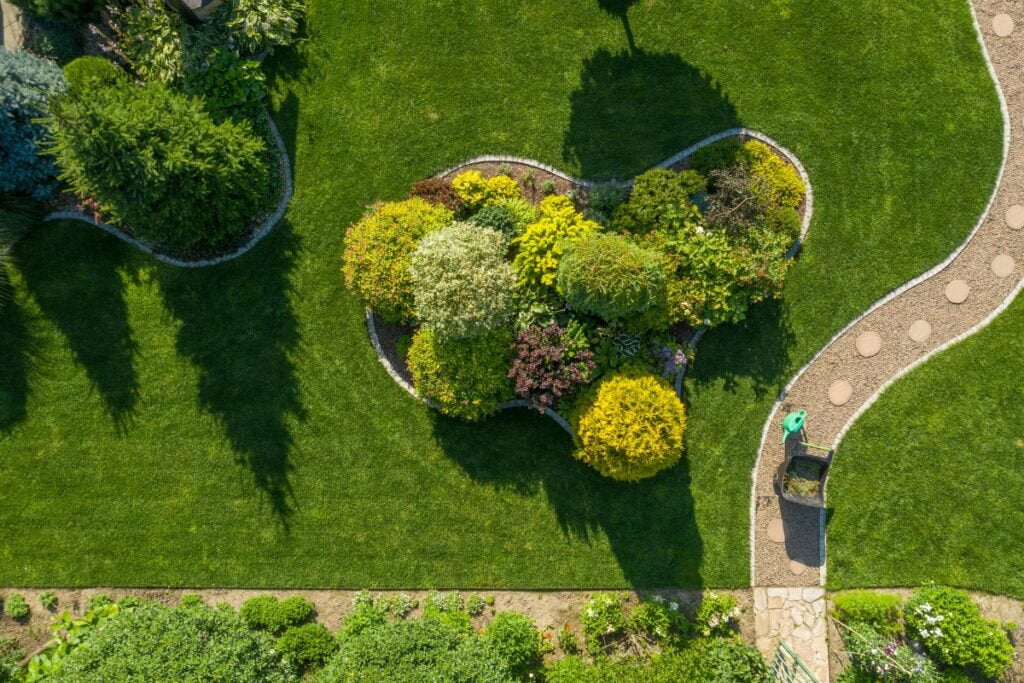
To maintain a vibrant oasis in your backyard, regular pruning and maintenance are essential. Summer gardening tips play a crucial role in ensuring your outdoor space remains lush and inviting throughout the season. By incorporating proper pruning techniques and staying consistent with upkeep tasks, you can keep your oasis in top shape.
When it comes to pruning, it’s important to focus on removing dead or damaged branches from trees and shrubs. This not only enhances the overall appearance of your garden but also promotes healthy growth. Additionally, pruning allows for better air circulation and sunlight penetration, which are vital for plant vitality.
Another aspect of maintenance to consider is watering. During the hot summer months, plants require more water to thrive. Make sure to water your garden early in the morning or late in the evening to prevent evaporation. Mulching around plants can also help retain moisture and reduce weed growth.
Incorporating fertilization into your gardening routine is another key element in maintaining a vibrant oasis. Choose a fertilizer rich in nutrients that are beneficial for plant growth. Be sure to follow instructions carefully to avoid over-fertilization, which can harm plants.
Weeding is a tedious but necessary task in maintaining a healthy garden. Regularly remove weeds to prevent them from competing with your plants for resources. Mulching can also help suppress weed growth while adding a polished look to your oasis.
Pest control is another crucial aspect of summer gardening. Keep an eye out for common pests that may damage your plants and take appropriate measures to eliminate them. Consider using natural remedies or environmentally friendly solutions to protect your garden ecosystem.
By following these summer gardening tips and staying proactive with pruning and maintenance, you can create and sustain a vibrant oasis in your backyard. Enjoy the beauty of your lush garden retreat throughout the summer months, providing a peaceful and rejuvenating escape right outside your door.
Creating Visual Interest with Colorful Blooms and Foliage
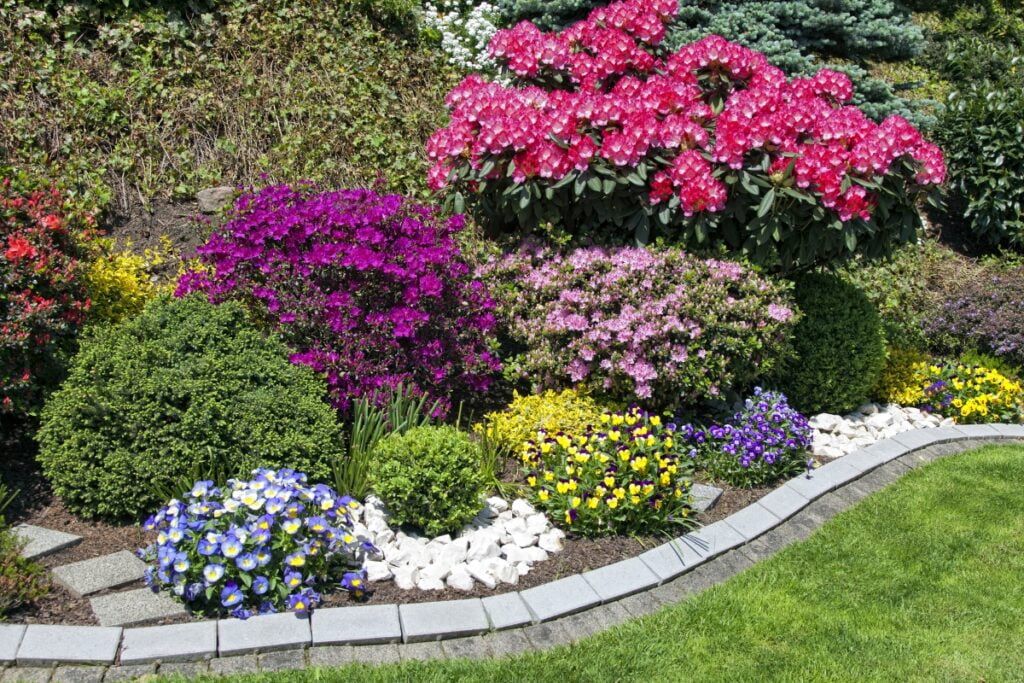
If you want to transform your backyard into a vibrant oasis this summer, one of the key elements to focus on is creating visual interest with colorful blooms and foliage. Incorporating a diverse range of flowers and plants can add depth, texture, and a pop of color to your garden space.
When considering colorful blooms, think about incorporating a mix of annuals and perennials. Annual flowers such as petunias, marigolds, and zinnias bloom profusely throughout the summer, providing a constant burst of color. On the other hand, perennials like coneflowers, daylilies, and black-eyed Susans can offer long-lasting color year after year.
To add a dynamic touch to your garden, consider plants with colorful foliage. Plants like coleus, Japanese maple, and coral bells come in a variety of hues, from vibrant greens to deep purples and reds, adding visual interest even when not in bloom. Mixing these foliage plants with flowering ones can create a balanced and captivating garden landscape.
When planning your garden design, think about the color wheel to create harmonious color combinations. Pairing complementary colors like purple and yellow or blue and orange can create a striking visual impact. Additionally, consider the texture and height of plants to add dimension to your garden beds.
Don’t forget to incorporate different shades of green as well. Green acts as a calming and grounding color that can tie the diverse palette of blooms and foliage together. Plants like ferns, hostas, and ornamental grasses can provide a lush green backdrop for the more colorful elements in your garden.
Incorporating Functional Elements: From Pathways to Seating Areas
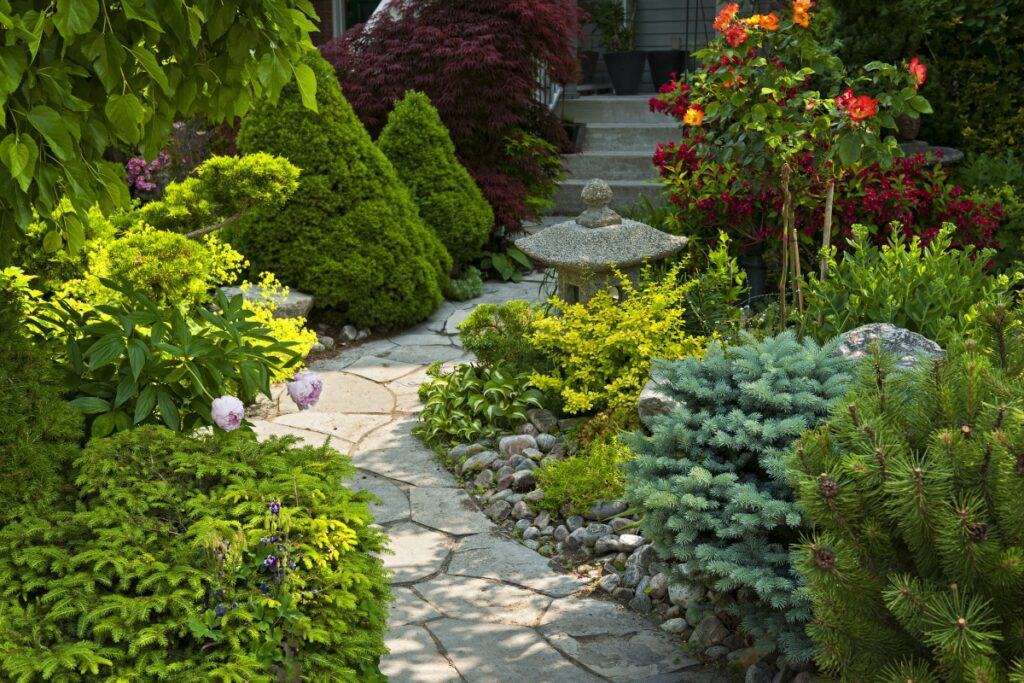
When it comes to summer gardening tips, one crucial aspect to consider is incorporating functional elements into your backyard oasis. From creating pathways that lead to cozy seating areas, these elements can elevate your outdoor space while enhancing its functionality.
Pathways not only guide visitors through your garden but also create a sense of structure and organization. Consider using materials like gravel, stepping stones, or even lush greenery to create visually appealing walkways. These pathways can lead to different sections of your garden, including seating areas, flower beds, or even a vegetable patch.
Seating areas are essential in any outdoor space, especially during the summer months. Whether you opt for a cozy bench under a shady tree or a set of stylish outdoor furniture, make sure to choose seating that is both comfortable and durable. Adding colorful cushions, outdoor rugs, and decorative lighting can further enhance the ambiance of your seating area.
Incorporating functional elements like pergolas or arbors can provide shade and privacy in your garden. These structures not only create a focal point but also offer a perfect spot to hang fragrant flowers or climbing plants. Consider adding a hammock or swing for a relaxing touch, creating a tranquil retreat right in your backyard.
When planning your garden layout, think about how each element can serve a purpose while adding to the overall aesthetics. By combining pathways with seating areas, shade structures, and decorative elements, you can transform your outdoor space into a vibrant oasis where you can relax and unwind during the summer months.
Embracing Natural Wildlife: Attracting Butterflies, Bees, and Birds
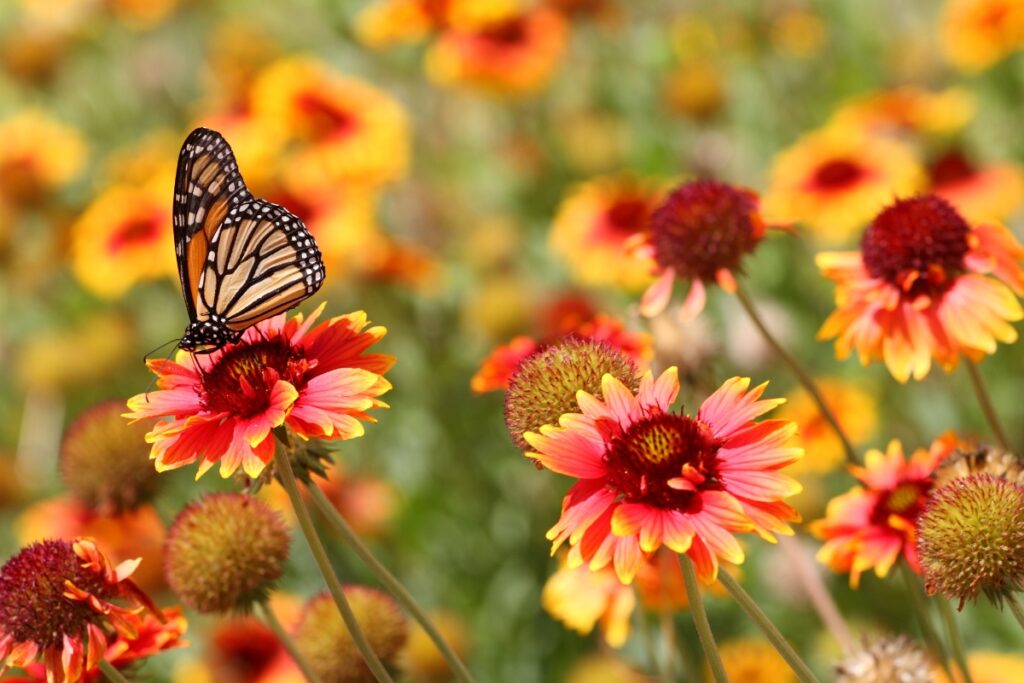
To create a vibrant oasis in your backyard, one of the key elements is embracing natural wildlife. By attracting butterflies, bees, and birds, you can enhance the beauty and ecological balance of your garden. Here are some summer gardening tips that will help you attract these lovely creatures.
- Select Native Plants: Choose plants native to your region as they provide food and shelter for local wildlife. Native plants have evolved to attract specific pollinators like butterflies and bees, making them essential for a thriving ecosystem in your garden.
- Create a Pollinator-Friendly Habitat: Designate a section of your garden specifically for pollinators. Plant flowers such as lavender, coneflowers, and bee balm to attract butterflies and bees. Provide a water source like a small birdbath for birds to drink and bathe in.
- Avoid Pesticides: Opt for natural pest control methods instead of chemical pesticides. Pesticides can harm beneficial insects like bees and butterflies. Encourage natural predators like ladybugs and lacewings to keep pest populations in check.
- Add Bird Feeders and Houses: Hang bird feeders filled with seeds and nectar to attract a variety of bird species to your garden. Install birdhouses or nesting boxes to provide shelter for birds to raise their young.
- Maintain a Variety of Plants: Plant a diverse range of flowers, shrubs, and trees to offer food and habitat for different wildlife species. Include seasonal blooms to provide nectar and pollen throughout the year.
- Create Sheltered Areas: Incorporate shrubs, tall grasses, and trees to create sheltered areas for wildlife to seek refuge from predators and harsh weather conditions. These microhabitats also offer nesting sites for birds and butterflies.
- Provide Nesting Materials: Scatter twigs, leaves, and grass clippings in your garden for birds to use as nesting materials. Leave dead plant stems standing over the winter to provide overwintering sites for beneficial insects.
By following these summer gardening tips and embracing natural wildlife, you can transform your backyard into a vibrant oasis that not only looks beautiful but also supports a healthy and sustainable ecosystem. Attracting butterflies, bees, and birds will bring life and movement to your garden, creating a harmonious environment for both you and the local wildlife to enjoy.
Sustainable Practices: Eco-Friendly Solutions for Your Garden
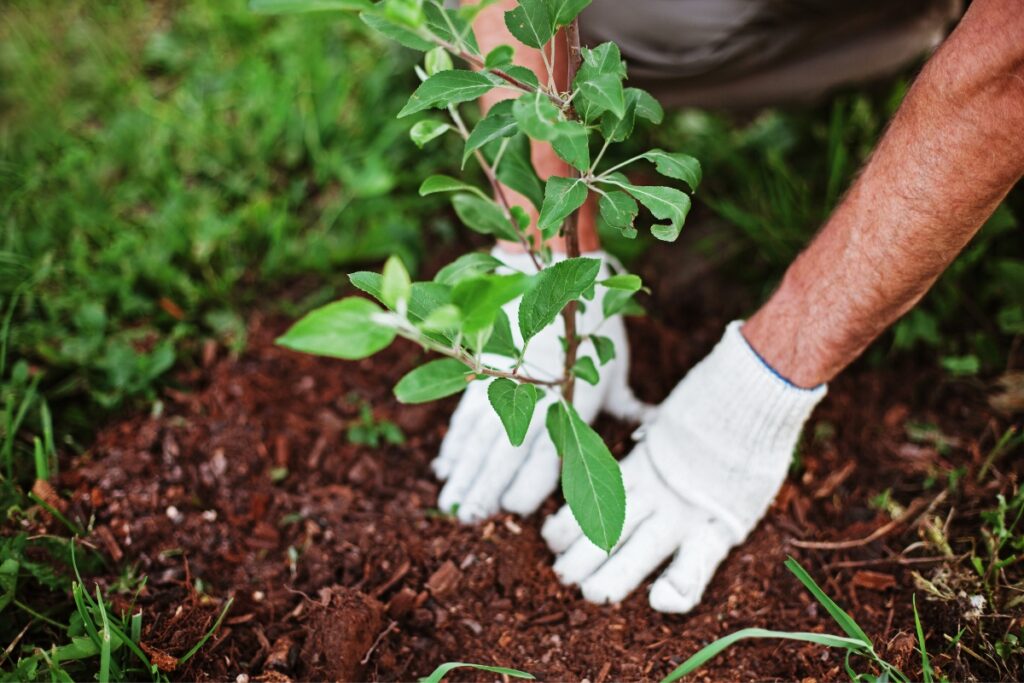
Gardening enthusiasts seeking sustainable practices can implement eco-friendly solutions in their gardens to promote a healthier environment. By incorporating these methods, you can create a vibrant oasis in your backyard while minimizing your carbon footprint.
When considering summer gardening tips, it is essential to focus on practices that are both beneficial for your plants and the planet. Utilizing organic fertilizers instead of chemical ones can significantly reduce the harmful impact on the environment. These natural alternatives nourish the soil, leading to healthier plant growth without compromising the ecosystem.
Water conservation is another crucial aspect of sustainable gardening. Installing a rainwater harvesting system can help you collect and store rainwater for later use in your garden. Opting for drought-resistant plants and utilizing mulch can also aid in reducing water consumption while still maintaining a lush and vibrant garden during the hot summer months.
Incorporating eco-friendly solutions such as composting not only reduces waste but also enriches the soil with essential nutrients. Composting kitchen scraps and yard waste creates a natural fertilizer that promotes soil health and boosts plant growth without the need for synthetic chemicals.
Furthermore, choosing native plants for your garden can support local biodiversity and reduce the need for excessive maintenance. Native plants are well-adapted to the local climate and soil conditions, requiring less water and maintenance compared to exotic species. This not only conserves water but also attracts beneficial insects and wildlife to your garden.
Implementing sustainable practices in your garden not only benefits the environment but also provides a serene and beautiful space for relaxation and enjoyment. By following these eco-friendly solutions, you can create a sustainable oasis in your backyard that thrives throughout the summer months and beyond.
Nighttime Charm: Illuminating Your Oasis After Sunset
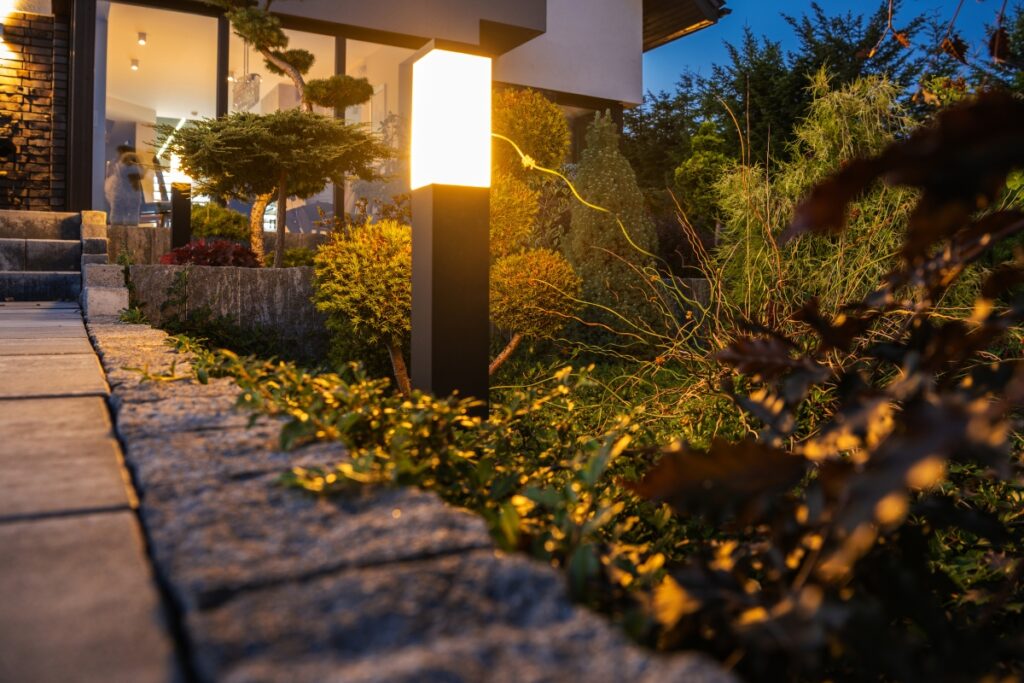
When it comes to creating a vibrant oasis in your backyard, don’t forget to enhance its nighttime charm by illuminating your outdoor space after sunset. The magic of a well-lit garden can transform your backyard into a cozy retreat where you can unwind and enjoy the warm summer evenings.
Incorporating strategic lighting elements can make a significant difference in the ambiance of your outdoor oasis. Opt for soft, warm lighting to create a welcoming atmosphere that beckons you to relax and savor the beauty of your garden even after dark.
Consider installing pathway lights to guide your way through the garden and highlight key features such as flower beds or shrubs. These lights not only add a touch of elegance to your outdoor space but also ensure safety by illuminating paths and walkways.
String lights can instantly elevate the aesthetic appeal of your backyard oasis. Whether hung on trees, pergolas, or fences, these twinkling lights create a magical ambiance that is perfect for hosting intimate gatherings or simply enjoying a quiet night outdoors.
For a touch of drama and sophistication, incorporate uplights to showcase your favorite plants or architectural elements. Uplighting not only adds depth and dimension to your garden but also draws attention to the beauty of your landscaping even in the dark.
Don’t forget to highlight water features such as fountains or ponds with underwater lights to create a mesmerizing effect that reflects the tranquility of the night. The gentle glow of underwater lights can transform your outdoor oasis into a serene haven where you can unwind and recharge amidst the soothing sounds of water.
Conclusion: Your Summer Oasis Awaits – Start Creating Today!
Your backyard has the potential to become a vibrant oasis that brings joy and tranquility throughout the summer months. By following these summer gardening tips, you can transform an ordinary outdoor space into an extraordinary haven bursting with life.
Transform your backyard into a vibrant summer oasis with expert landscaping services from Glover Landscapes. Our team is dedicated to helping you create a lush, beautiful outdoor space that you can enjoy all season long. Contact us today at (404) 510-6437 or get a free estimate through our site form. Let Glover Landscapes turn your backyard dreams into reality.
